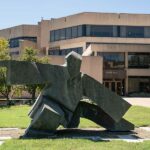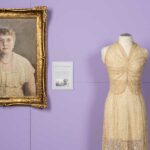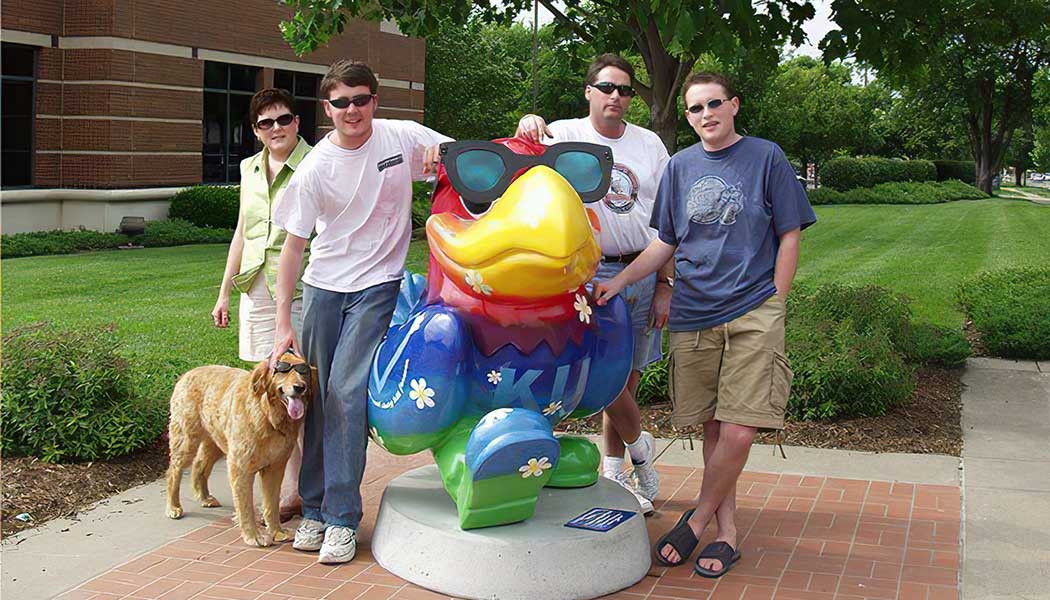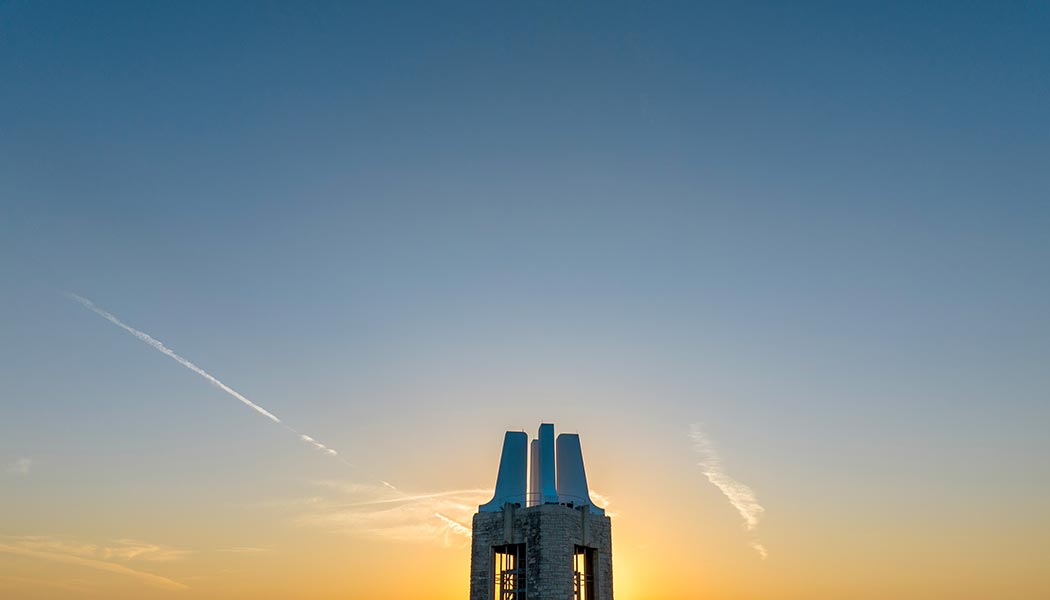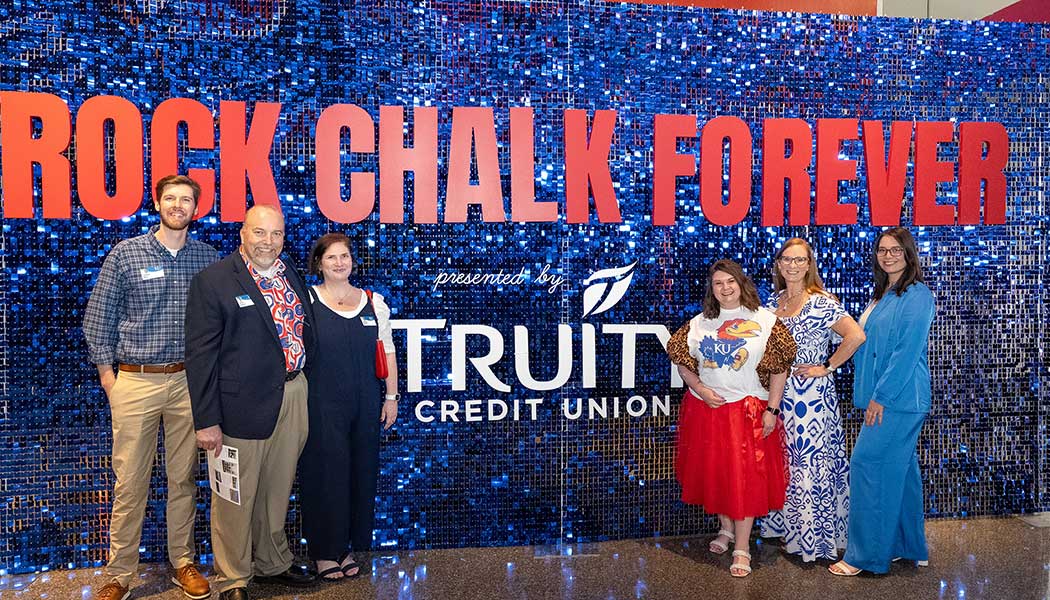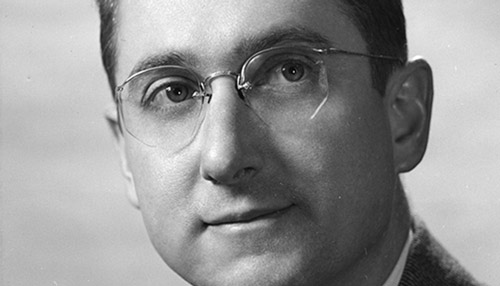News briefs
Riverbank restored, trustees elected, spring semester set and more
Four join Endowment board
Alumni from Kansas, Minnesota, New Jersey lend talents to KUEA
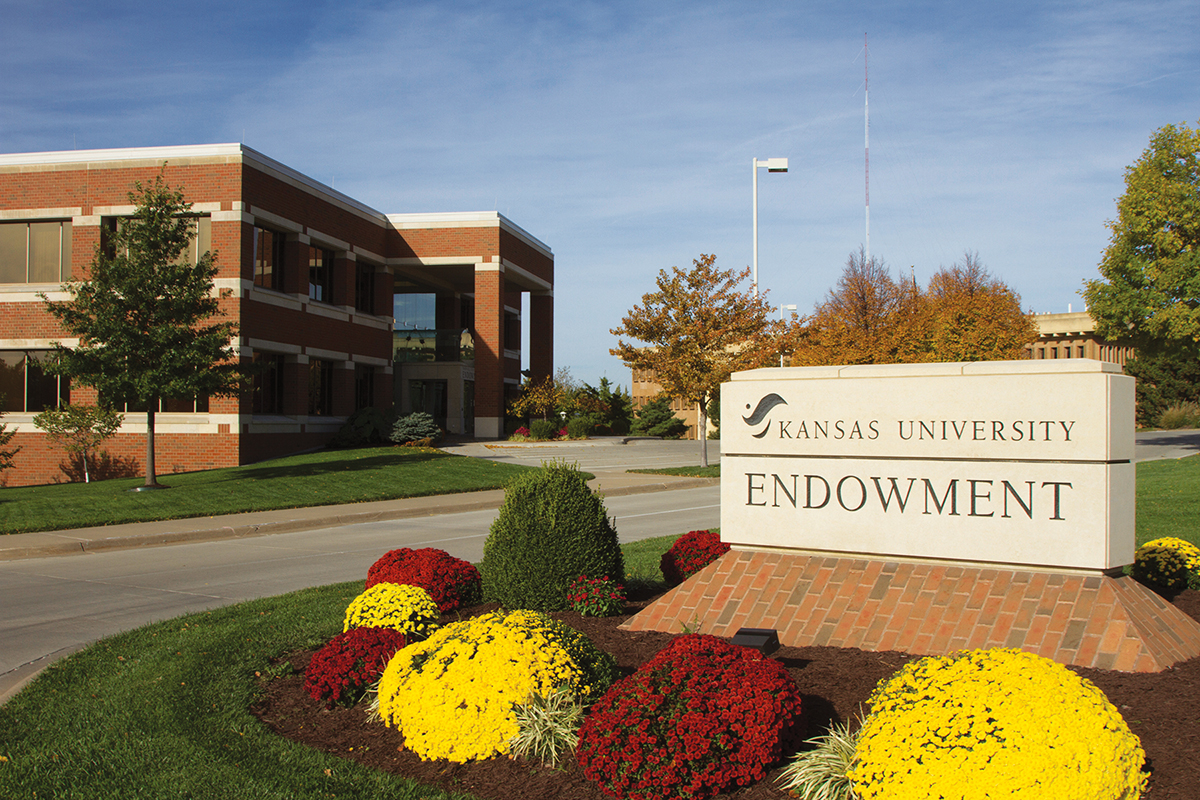
KU Endowment trustees on Oct. 2 elected four alumni to join their ranks: Paul DeBruce of Mission Hills; Gerry Dixon of Franklin Lakes, New Jersey; Dana Valdois Hensley of Andover; and Dave Roland of Shorewood, Minnesota.
DeBruce, b’73, is CEO of DeBruce Companies and the DeBruce Foundation, which was instrumental in creation of KU’s DeBruce Center, home to James Naismith’s original rules of basketball and a vibrant hub for students and visitors alike. DeBruce served on the executive committee of the Board of the National Grain and Feed Association and is a past board member of the Kansas City Board of Trade; he is a Chancellors Club member and Alumni Association Life Member.
Dixon, b’90, is managing partner for U.S.-East markets at Ernst & Young LLP, based in New York City. He is a member of the School of Business Board of Advisors and the Accounting Advisory Council. He is a Chancellors Club member and Alumni Association Life Member.
Hensley, d’73, g’76, a retired principal at Wichita Collegiate School, is a member of Jayhawks for Higher Education, the Alumni Association’s legislative advocacy organization, and a past member of the Hall Center for the Humanities Advisory Board. She was a member of the Hall Center committee for Endowment’s Far Above capital campaign, and is an Alumni Association Life Member.
Roland, e’80, a member of the KU Engineering Advisory Board, recently completed his term as chair of the Alumni Association’s national Board of Directors as well as his service as president and CEO of NDC Technologies in Dayton, Ohio. He currently provides consulting and leadership to businesses needing restructuring, realignment and strategy development.
River restoration shows results
With help from alumna, Friends of the Kaw brings native habitat back to the riverbank
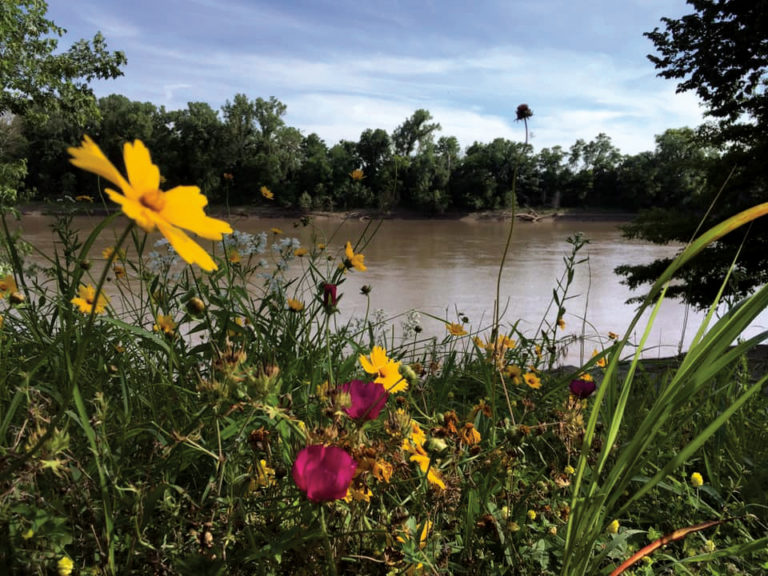
A project to rejuvenate a mile of Kansas River shoreline in Douglas County is already bearing fruit—flowers, more accurately—thanks to a habitat restoration effort led by Courtney Masterson, g’17.
Funded by a $78,000 Douglas County Natural and Cultural Heritage Grant, the project enlisted volunteers to remove invasive species near City of Lawrence river trails in North Lawrence. The partnership between Friends of the Kaw and the Kaw Valley Native Plant Coalition, which Masterson founded [“Passion for prairie plants leads alumna to her niche,” issue No. 6, 2018], replaced honeysuckle, poison ivy and winter creeper with more than 500 native trees and shrubs (including American hazelnut, Ohio buckeye and pawpaw); more than 2,000 native wildflower and grass plugs; and more than 50 pounds of native seeds. By June the riverbank was blooming with lanceleaf coreopsis, purple poppy mallow, butterfly milkweed and Western yarrow.
“New blooms and shoots in a restoration always get my heart pumping,” Masterson says. “They’re a promising sign that the newly created ecosystem is starting to function, to create space for wildlife. Long term, this restoration will provide diverse resources to native animals, plants, and even the tiny life forms like soil microbes. It will also help to anchor our precious riverbank soil, demonstrating how native plants help to protect water quality. As the trees and shrubs mature, they will begin to produce nuts and berries that were once important food sources in the region. The leaves of many of the added species will host important insects that form the foundation of a native forest ecosystem, providing resources for a complex web of wildlife. This is just the beginning of something truly transformational.”
Calendar set for next semester
Spring to bring continued safety measures, in-person Commencement
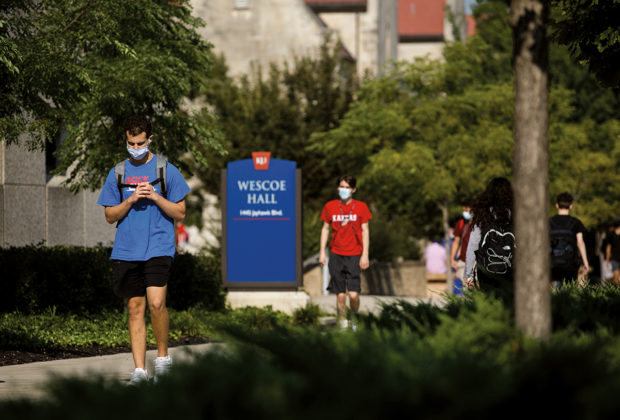
Citing lessons learned after more than half a year of maintaining classes and other campus operations amid a global pandemic, the Office of the Provost on Oct. 16 announced plans for the coming spring semester.
“There are some areas where we can safely make changes to our approach, and other areas where we must continue with our current course,” Provost Barbara Bichelmeyer wrote in an email to students, faculty, staff and affiliates.
Safety protocols that mandate masks, physical distancing, and enhanced cleaning of classrooms, work spaces and common areas will continue after on-campus classes begin Feb. 1. The CVKey app will still be required for entry into campus buildings, staff who have been able to work remotely should continue to do so, and only “mission-critical” events will be allowed and must be approved by the Office of Event Management and Protocol.
The University is planning to conduct mandatory reentry testing for COVID-19 in the spring, according to the provost’s message. Because testing capabilities are constantly evolving, the KU Pandemic Medical Advisory Team has not yet determined what form testing will take.
From Aug. 1 to Oct. 25, the University conducted 33,034 tests, with 1,101 positive results, a 3.37% positivity rate.
In addition to the late start, the academic calendar also features no mid-semester spring break. Finals will end May 14, and “a team is working on plans for what an appropriate in-person Commencement program might look like,” wrote Bichelmeyer, j’82, c’86, g’88, PhD’92.
During his weekly COVID-19 update Oct. 28, Chancellor Doug Girod also expressed his commitment to an in-person event on May 16.
“We will figure that out in the football stadium in a fashion that is safe, whatever the conditions are come next May,” Girod said. “Whether that’s a physically distanced set up as well, which it may well need to be, that’s what we’ll work for. … We will figure out how to have an in-person event.”
Plans are also underway for a celebration of the Class of 2020 a week after the 2021 Commencement. “We are working towards two Commencements, because we really did not have an opportunity to celebrate our class of 2020,” Girod said. “We are planning a Commencement for the Class of ’20, to welcome them back.”
Kristin Bowman-James, Distinguished Professor and director of Kansas NSF EPSCoR, will receive the 2021 Award in Inorganic Chemistry from the American Chemical Society in March. She is only the second woman to receive the award since its inception in 1962; it recognizes her work in expanding the structural concepts of transition metal coordination chemistry to include negatively charged ions, known as anions. Bowman-James is co-editor of the first book devoted to anion chemistry, in 1997, and its 2012 sequel.
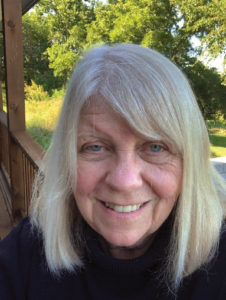
Pharma students fan out
When COVID-19 shut down campus in mid-March, and pharmacy students in their fourth and final year still had two months of clerkship rotations to earn PharmD degrees, their professors posed a pivotal question: Were the students willing to travel to community pharmacies, knowing the risks, or would they prefer to delay their service—and possibly their graduation? “We honestly struggled with it,” says Joe Heidrick, PharmD’04, assistant dean for experiential education. “We did present it to the class and said, ‘How do you feel about this? Is this something you want to do as a class?’”
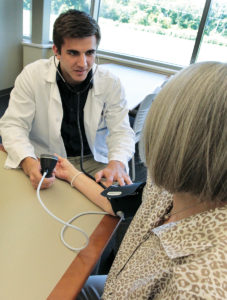
They quickly answered yes—nearly unanimously—and not only to scoop up graduation requirements. “They knew they are health care providers and they were going to have to be on the frontline of this,” Heidrick says. The Class of 2021 answered the call to service equally enthusiastically, heading out for pharmacies, hospitals, doctors’ offices and research venues
despite inherent dangers of frequent travel and patient interaction during a pandemic. Each class of about 150 student pharmacists will eventually deliver more than 200,000 hours of uncompensated direct patient care. “There’s been challenges in getting them in sites and keeping them safe in those care environments,” says Dean Ronald Ragan, p’84, g’97, PhD’98, “but I’m incredibly proud of how they’ve responded.”
RELATED ARTICLES
/

